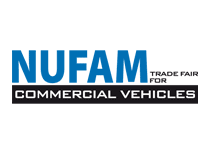De minimis aid: same procedure, new name
The funding programme for fleet operators has been replaced by the ‘Environmental Protection and Safety’ programme. Otherwise, little has changed. The deadlines are still being negotiated, and caution is advised when se
When the funding programme of the same name was introduced on 1 July 2009, the term ‘de minimis’ was something of an acquired taste. The programme is based on the EU-wide de minimis regulation, which allows member states to grant small subsidies without the approval of the EU Commission. Since then, fleet operators of heavy commercial vehicles in Germany have been able to apply for subsidies for efficiency-enhancing measures. This will also apply in 2025.
A total of EUR 260 million is earmarked
As of this year, the funding programme is called ‘Environmental Protection and Safety’. The necessary funds come from the federal budget, which the new federal government has yet to decide on. In view of the planned gigantic new debt, it is to be expected that sufficient funds will be available again. In any case, the draft budget provides for around 260 million euros.
All road haulage companies within the meaning of the GüKG that own or operate commercial vehicles with a permissible total weight of more than 3.5 tonnes are entitled to this. These must be registered in Germany for use on public roads. The cut-off date is 1 December 2024.
Maximum of 33,000 euros per company
The maximum annual funding amount depends on the size of the fleet. There are 2,000 euros per heavy-duty commercial vehicle. So for ten vehicles, 20,000 euros are available. However, the absolute funding cap per company is 33,000 euros.
These subsidies are not a kind donation from the legislator, but compensation for toll payments made. It is a funding programme of the Federal Office for Logistics and Mobility (BALM). Applications for funding must be submitted electronically to the BALM, which has set up a special portal for this purpose.
As before, funding is available for equipment, facilities and other measures in the field of environmental protection and safety, as well as for advice on environmental and safety-related issues. A maximum of 80 percent of the respective measure will be funded. Payment will only be made after presentation of the proof of use.
Deadlines have not yet been set
No funding will be provided for measures that are mandatory under laws, ordinances or administrative regulations. The same applies to vehicle components or measures that already form part of the standard vehicle equipment.
The date from which applications can be submitted is still being agreed. The only thing that is certain is that applications must be submitted by 31 August 2025 at the latest. However, you should not wait that long, because the first come, first served principle still applies when distributing the funds. As soon as the funding pots are used up, no more grant notifications will be issued.
Bureaucracy is a deterrent
For this reason, you should not only submit your application early, but also complete it carefully. Errors can lead to an application being rejected temporarily, which in turn can cause long delays. In the past, the associated bureaucracy has deterred many fleet operators from even submitting an application. In view of this, many funding advisors are now offering their services, taking on all the paperwork involved in the application process for a fee.
But caution is advised, because there are black sheep among the consultants. In any case, in 2023 there was a scandal involving sham transactions that had serious consequences. At that time, invoices from a company set up by a subsidy consultant were submitted. The invoices were for sham sales and sham lease-purchase transactions. There was no actual purchase of the subsidised products and services.
Prison sentence for subsidy consultant
This fraud, which involved over 100 cases, resulted in damages of around €900,000. The funding consultant was sentenced to four years and six months in prison for subsidy fraud. Investigations are also ongoing against 92 applicants for subsidy fraud. The wrongly paid out funds are to be repaid with interest.

